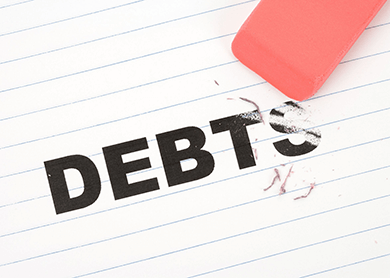
NEW YORK/MIAMI: The sobering news arrived in San Juan via telephone from Washington. Saddled with US$72 billion (RM259.2 billion) in debt, the commonwealth — a United States territory since the Spanish-American War — needed a credible plan.
It was April 28, and US Treasury Secretary Jacob J Lew called to tell Puerto Rico officials they must confront one of the island’s gravest financial crises without a bailout.
The Caribbean island is hurtling towards the fiscal brink.
After years of borrowing to paper over deficits, and with US$630 million due to investors on July 1, Puerto Rico may confront the unthinkable — a default. The prospect has set Wall Street on edge as bond yields surpass those of Argentina and Greece; about half of municipal mutual funds hold commonwealth debt.
Last Thursday, Puerto Rico’s House of Representatives passed a Bill that would raise the junk-rated island’s sales tax, a move that may help it sell debt and ease a cash crunch.
House members voted 26 to 24 to boost the levy to 11.5% from 7% through March, after which it will transition into a value-added tax.
Puerto Ricans across the political spectrum are alarmed at the scale of the crisis, Rafael “Tatito” Hernandez, chair of the House Treasury Committee, said during a May 6 interview at the Capitol. Every mayor on the island will face angry constituents, he added, especially those whose working weeks may be cut down to four days.
To give its struggling economy some breathing room, Puerto Rico sold US$3.5 billion in bonds last year, the largest junk-rated municipal offering in history. Since then, economic activity has contracted every month, following eight years of declines. Revenue this year is US$251 million below estimates, according to the island’s Treasury Department.
The Government Development Bank (GDB), which lends to Puerto Rico and its municipalities, will deplete its liquidity by Sept 30, unless the island completes a planned sale of US$2.9 billion of debt backed by oil taxes, according to the commonwealth’s latest quarterly filing. The bank’s net liquidity dropped to US$1.02 billion as of April 30, from US$2 billion last October.
Increasing revenue would attract investors to the planned oil-tax bond deal, according to the GDB. Proceeds would repay money the commonwealth’s highway authority owes the bank and help avert a partial government shutdown.
The US territory’s 3.5 million residents will have to make sacrifices as government services decrease because selling debt to finance spending isn’t an option, Victor Suarez, Garcia Padilla’s chief of staff, said during the conference.
“We no longer have the ability to continue financing our operational budgets with deficits paid for by borrowing,” Suarez said. “It will require some sacrifice on the part of citizens. Some government offices will have to close and people will have to travel to a neighbouring municipality [or] county to receive services.” — Bloomberg
This article first appeared in The Edge Financial Daily, on May 25, 2015.